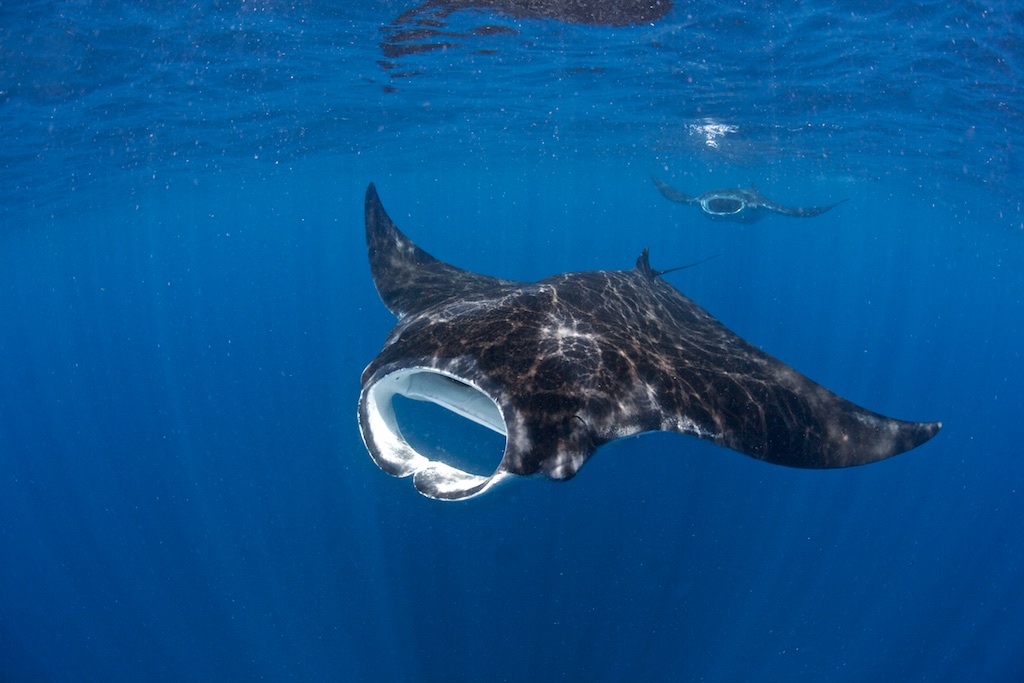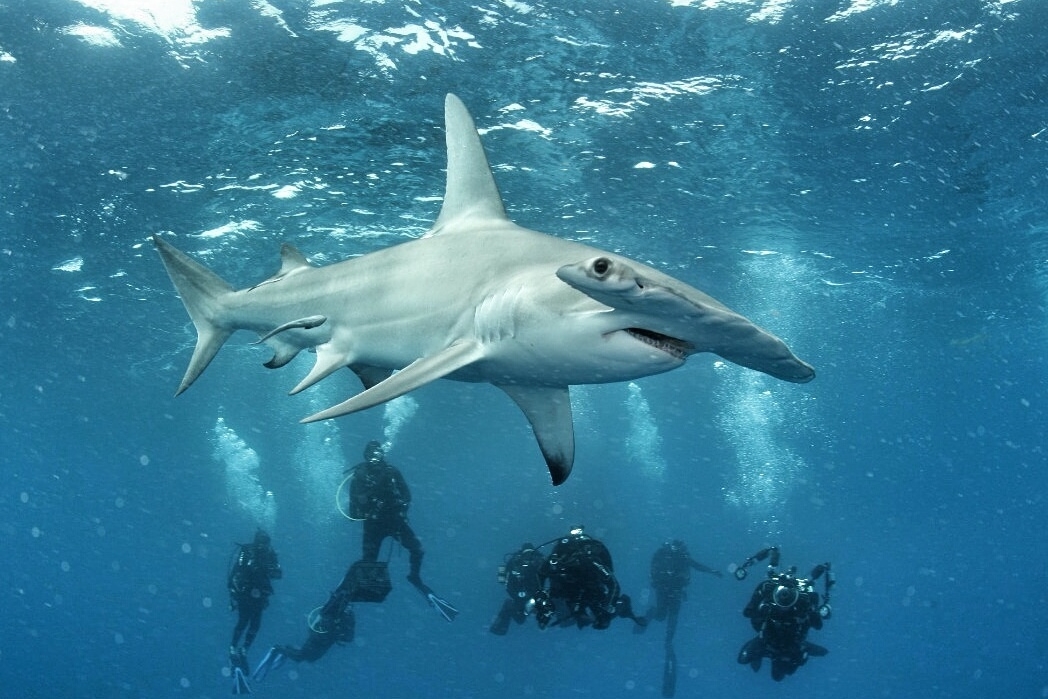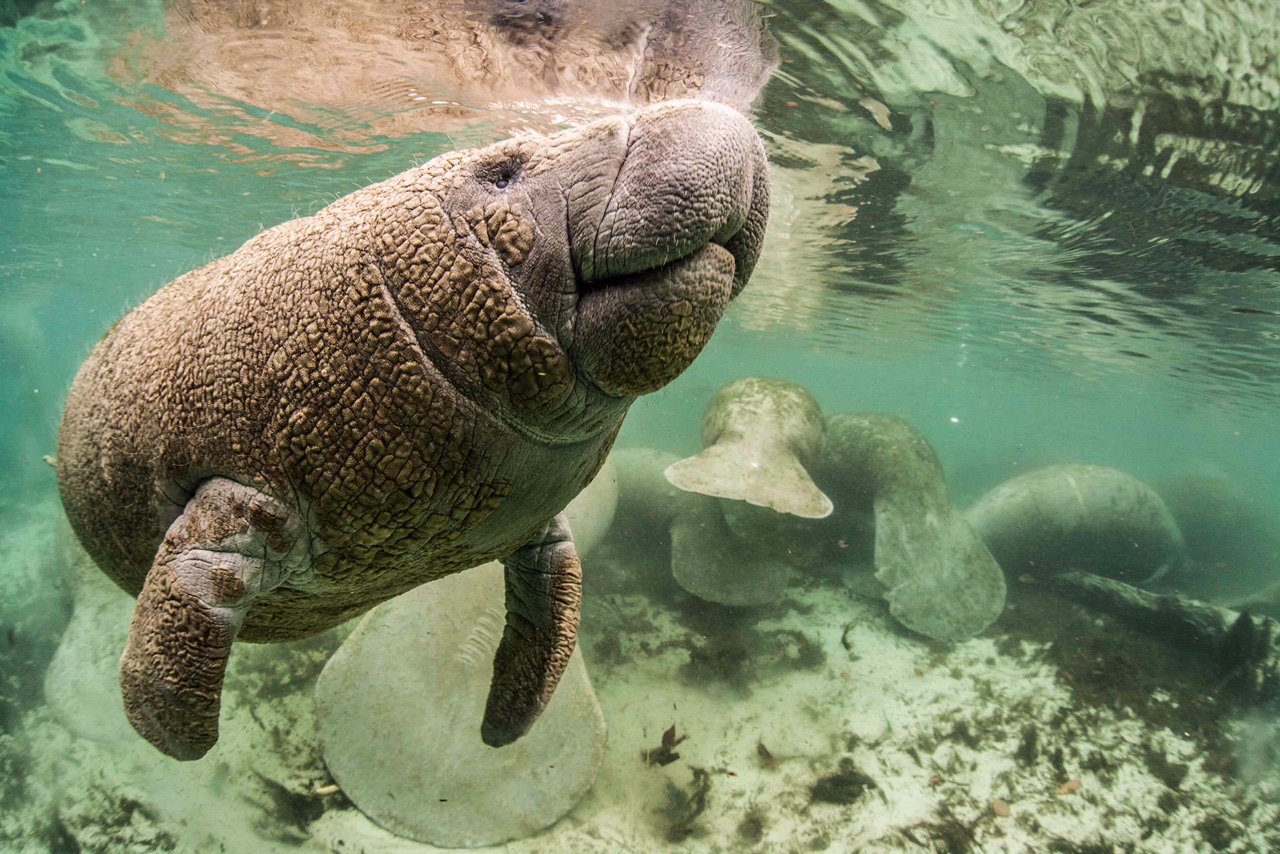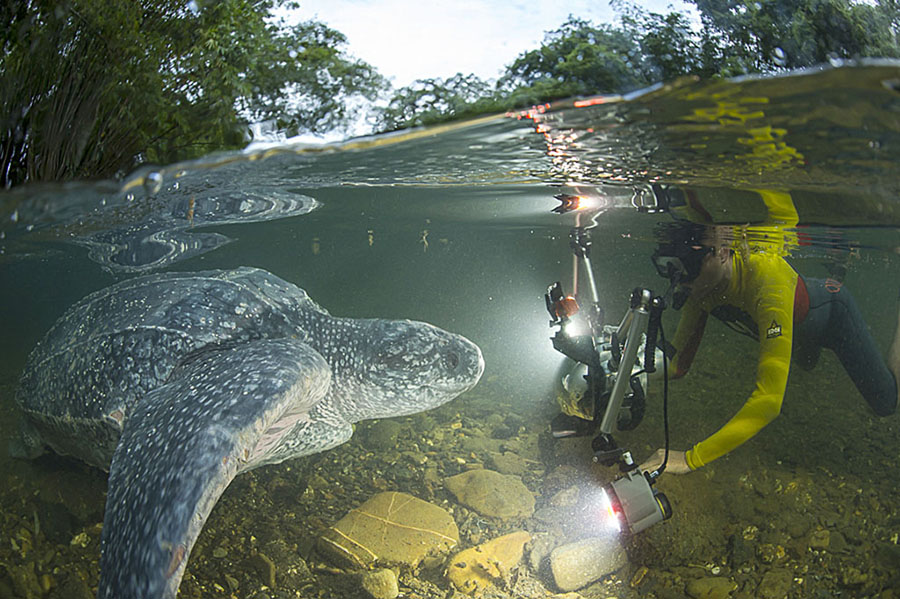The ocean is Vincent Kneefel’s biggest passion and his mission is to make people fall in love with the oceans.
The Dutchman became a dive master and PADI instructor at the age of 18 and after seeing the extraordinary creatures and incredible marine life that live in our oceans, he decided to become an underwater photographer and story teller. He has witnessed the impacts of overfishing, pollution, ocean acidification, climate change and habitat destruction on marine life firsthand. He feels strongly that we all need to do something about this situation now, before it’s too late. As his hero, marine biologist and explorer Dr. Sylvia Earle has said, “The next 10 years are probably the most important of the next 10,000 years, so everyone should listen up.”
Kneefel writes about the ocean, conservation and sustainability and photographs his travel and expeditions. We asked him what’s needed to preserve the ocean for future generations.

What is the most shocking fact you can share about the world’s oceans?
Although the ocean seems abundant today, it’s only a glimpse of what it once was. Fish stocks have decreased globally by 50% over the past 50 years, and some larger species, such as sharks, tunas and rays, by more than 90%. Before commercial fishing started, the ocean was 10 times as abundant as it is today. The ocean’s ecosystems have been severely impacted by human activity. Unfortunately, it’s hard for our generation to grasp the magnitude and gravity of all of this. We go diving and see a beautiful reef with maybe some sharks and think this was an amazing experience, but we have no idea what the original state of the coral reef was like before humans started over-fishing.

What is the biggest threat to the world’s oceans?
Our ignorance. The ocean is in peril and facing over-fishing, acidification, habitat destruction and pollution. These are creating a perfect storm that could result in a major collapse of ecosystems and species extinction within the next 30 years. Our oceans have been around for millions of years, yet in the last 50 years we have destroyed much of it. We’re presently on course to destroy everything that’s left. Scientists predict that if we continue the current rate of fishing, our oceans could be empty be 2050. With more and more plastic ending up in our ocean, we could have more trash than fish in the ocean one day! All of this has to do with a lack of awareness. We continue to consume fish species which can’t be sustained, we continue to use single-use plastic, we continue to demand cheap products from all over the world that must be shipped across our oceans.
What do you believe needs to be done to protect the world’s oceans?
Jacques Yves Cousteau once said “People protect what they love.” We can only save the ocean once we actually start caring and wanting to make a personal difference. I’m trying to inspire people to care about the oceans by taking portraits of its amazing inhabitants. My book Giants of the Caribbean is a collection of nine endangered species that each have a story. Through my photography I’m hoping to convince people how important it is to preserve these resources for future generations. We need action on all levels: more conscious decision making and activism, companies reducing their impact and governments to enact strict regulations. Only 3% of the ocean is part of a marine protected area (MPA) and less than 1% is fully protected within marine reserves. We need to create safe zones that are off-bounds for fishing and regulation for areas within international waters. This is where the United Nations can play an important role.

What advice can you give to young social entrepreneurs aiming to solve a sustainability problem?
Find your passion. Move away from your desk and into the real world. Find which sustainability problem you’d like to solve, think outside the box and think how you can leverage technology, partnerships and new business models to approach the issue from a radical and disruptive angle. A real leader is genuinely passionate about their cause – something that will drive your success. The most successful social entrepreneurs have found solutions with radical new solutions, not incrementally improving on existing solutions. Validate your idea with customers and stakeholders and create a story for yourself that people understand and are inspired by. Be genuine and don’t only do it for the money. You may become rich, but you won’t be successful.
www.vincentkneefel.com




































